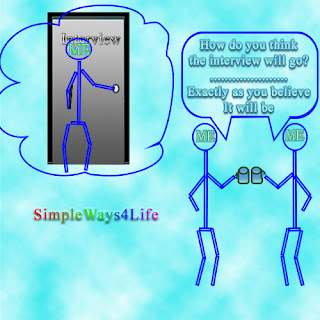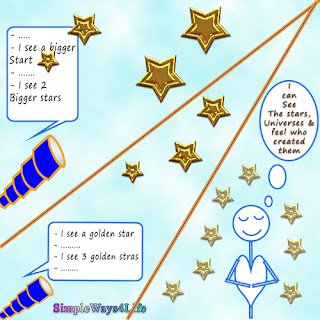Internal Dialogue
In continuation to our chats around communication, we shall explore together the Internal Dialogue.
WE had explored the communication either one way or two way with other humans, non humans and matter. In one of the previous chats we had explored the sources of internal voice. Internally our mind, ego and spirit guide us. Respectively they guide us to what is logically good, what is good for me only on the short term and what is taking us eternal goodness. You can read more about that in this chat Internal vs External Communication
While dialogue has an acceptable meaning of a conversation between two or more persons. But, how we can relate to this form of communication inside us?
WE had explored the communication either one way or two way with other humans, non humans and matter. In one of the previous chats we had explored the sources of internal voice. Internally our mind, ego and spirit guide us. Respectively they guide us to what is logically good, what is good for me only on the short term and what is taking us eternal goodness. You can read more about that in this chat Internal vs External Communication
Dialogue vs Monologue
Monologue is usually expressed in our mind as a dramatic sketch performed by one actor. We can relate to this in our internal communication when we receive an endless stream of thoughts from our mind. Or when our ego gives us a war speech to heat us up to revenge from someone who didn't show us enough respect. Or, a pity speech when we didn't achieve as others.While dialogue has an acceptable meaning of a conversation between two or more persons. But, how we can relate to this form of communication inside us?
Internal Dialogue
There are few forms of internal dialogues:
- Ask and receive an internal or external reply
- Discuss a situation internally
- Simulate a situation internally
Well, I didn't expect that there all these forms of dialogues within us until I intentionally traced each of them.
Let us demystify one by one and see if we can relate to it and what information does it add to us?
Ask and Receive an answer
That's the most powerful of them all. The correct statement is ask - The right question- and receive an answer. That's the form that helps us. Otherwise asking a wrong question will bring us an answer, but this time it won't show us the correct path.
As an example of the wrong questions that we all relate to is the when we ask our selves "Why do I feel tired?" We shall receive a punch of valid reasons that will fix the tiredness and we shall surrender to the fact that it is logical to feel tired. What if we asked the correct question "How do I feel fresh or rejuvenated or renewed?" In both cases we shall receive an answer but in the later we shall receive an answer that will guide us to what we want not to confirm the existence of what we don't want.
I don't recommend to ask for the the extreme opposite, unless we are ready for it.What Do I mean by the extreme opposite?
I mean That When I am Tired, I ask to be energetic and active. While that's a valid question but it invokes a strong push in the direction you want. You need to be ready for this leap and you need to add a custom ending for all your requests to be delivered with ease and in the best possible way. Other wise if we are still relating to the tiredness example, you can receive an urgent call for action due to an emergency condition. Your request is delivered and you jumped out of your location but not in a favorable circumstances.
The correct subtle question would invoke a whisper in your heart or ear or an ad that shows you how a massage retreat or an hour in the bathtub would renew you.
This example we were using above clarifies the nature of the replies we receive for our questions or requests. Either we receive an intuition, a stimulus or a kick that takes us out of the current condition.
Discuss a situation internally
I believe we all live this kind of internal talk frequently in our life. Usually, that's when we are thinking about a past or a coming event. You can find an example in a party or a family gathering. Supposedly, you had been in a family gathering lately. When this event flashes back to you mind while you are sitting alone or during a talk with another person, there are some dialogue that runs in your mind in the form of I enjoyed it because of so and so, I didn't enjoy the appetizer, my new dress was not comfortable, I liked the afternoon breeze while returning home and so on.
Same happens when you are preparing for an event.
If you managed to remember a past internal communication of that kind or you set an alert to catch coming one, those dialogues represents your believes or how you see the event. A little bit different will be there when this dialogue is around another person. Then it reflects your perceptions about that person. All that is played back to you for rehearsal and to deepen those believes.
You can take this to the next level by extending those discussions to question your believes and perceptions and enter new data to be stored instead of the old ones.
Simulate a situation internally
This serves you best when you are going for a new event like an interview, a new job or meeting a person for the first time. You simulate what you want to happen. This will reflect your expectations. It will also help you to rehearse about the situation so you are not totally taken by surprise.
This can work against you if you ran this dialogue about an interview for example and you expected it to be hard. Then you are projecting a future that you don't originally want. So take care.
Conclusion:
Why we need to know all this? This will serve us to change some default believes we have. We understand ourselves better. And, we have the option of setting new believes intentionally that will transform our reactions to the world and what we receives from it. See you soon.




Comments
Post a Comment